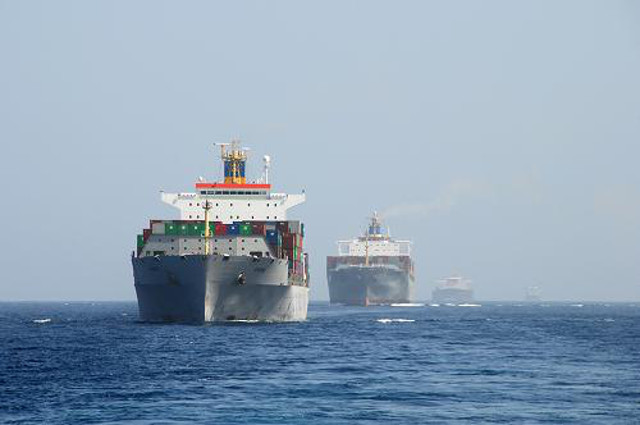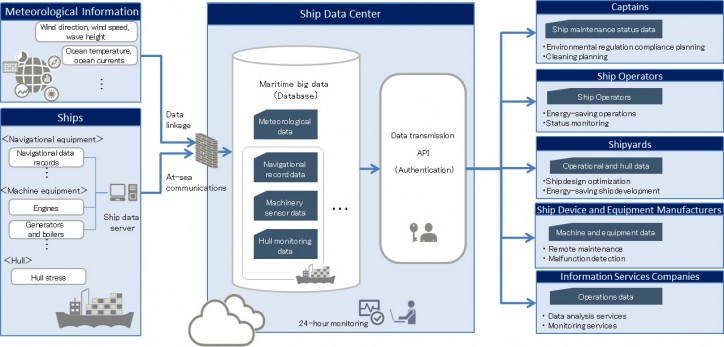A shared maritime platform for use by maritime businesses, which aggregates ship and marine weather data
Fujitsu Limited announced on Friday (May 06) that it has built a maritime big data platform for Nippon Kaiji Kyokai, an international ship classification society also known as ClassNK. The platform will be available from April, 2016.

Fujitsu has now built a platform with ClassNK that collects and accumulates machinery operational data from moving vessels, such as engine data, as well as marine weather information, as big data. This enables maritime businesses such as ship operators and shipyards to extract data about vessels under navigation, as needed. This will enable, for example, operations personnel to predict malfunctions using engine operations data, or to achieve more energy-efficient operations using voyage data and marine weather data.
This maritime big data platform, the first shared platform in the maritime industry, will be operated as a data center service by Ship Data Center Co., Ltd. (below, Ship Data Center), a subsidiary of ClassNK established in December 2015. Fujitsu will support the further effective use of ship data by expanding the functionality of this maritime big data platform, contributing to the further development of the maritime industry.

Figure 1: Maritime big data platform system overview
Background
With the development of broadband communications at sea, it has become possible to collect and monitor navigational information and information from sensors mounted on ship equipment and machinery. There has also been a focus on new efforts using data, such as energy-efficient operations and malfunction diagnosis. When these systems are built separately, however, their use is restricted to a few ships and maritime businesses due to the burden of cost and effort, such as data use agreements and strong security measures. This new ship data center, operated by Ship Data Center, is the industry's first effort that provides collected data as a shared platform to promote broad data use in the maritime industry.
System Summary
1. Able to build a data analysis and use system in a short time
The ship data center aggregates and stores navigational information sent from individual ships, such as from a VDR (Voyage Data Recorder), operational and measurement information for engines and all manner of ship-mounted equipment (machinery data), and worldwide marine weather information. Previously, in order to use ship data, maritime businesses had to individually collect the necessary data and integrate it as unified data, but now, because a wide variety of data is all collected together in the ship data center, and is provided through a web API that can generate a specialized data format for each business, they no longer need to prepare their own system from scratch to make use of big data. In addition, all sorts of data, collected in a variety of formats, can be converted to a variety of easier-to-use formats, such as CSV or JSON, when provided to users.
2. Security that makes it safe to use as an industry-wide platform
Because ship data is collected, stored, and transmitted through the internet, the ship data center features security functionality, such as data virus checking and user authentication.
Future Plans
Fujitsu will continue to expand the functionality of the ship data center, such as through the use of AI-based data analysis technology. In addition, Fujitsu is currently working to support the regulations proposed as new international standards for the handling of ship data as soon as possible.
Source: Fujitsu